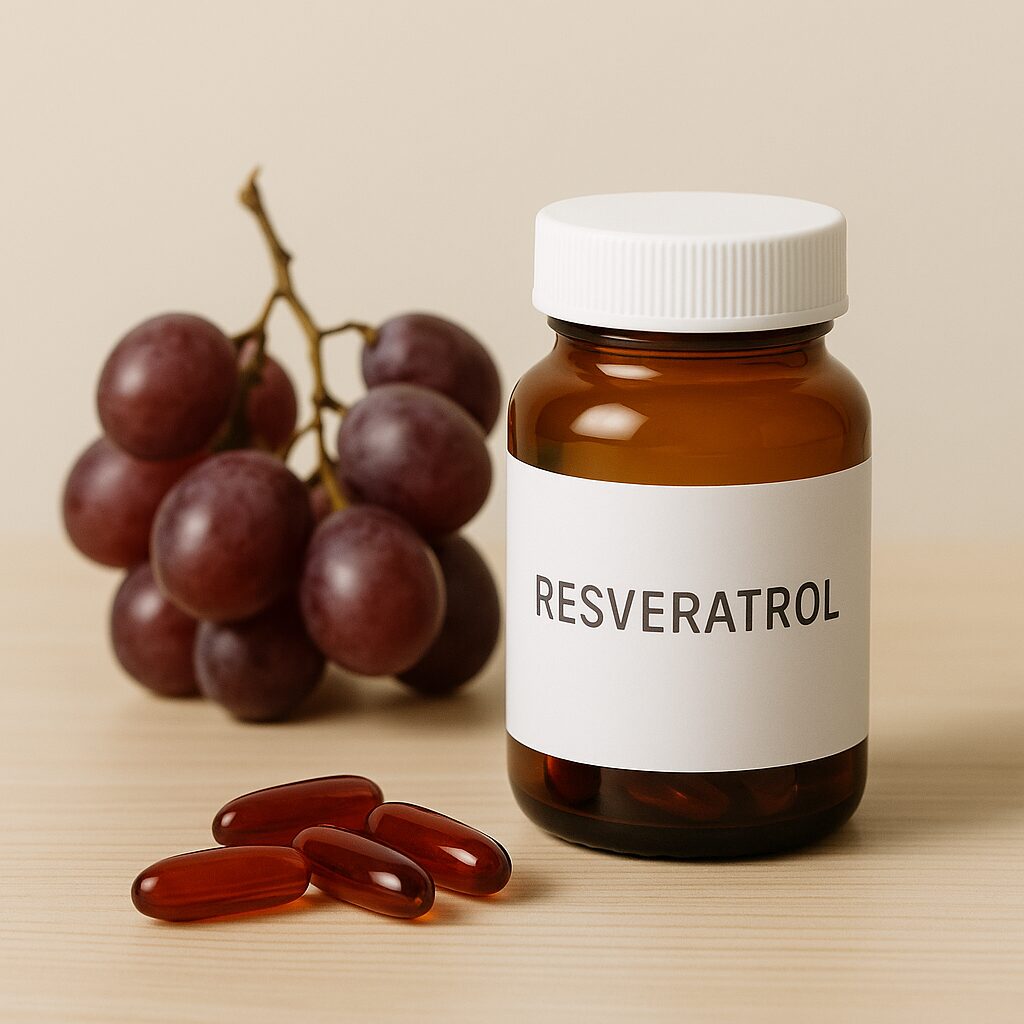Resveratrol is a natural polyphenol found in grapes, peanuts, berries, and red wine. Known for its strong antioxidant properties, it has been widely studied for its potential roles in slowing aging and protecting cardiovascular health. This article summarizes the main benefits and general considerations for its use.

1. Overview of Resveratrol
Resveratrol is classified as a phytoalexin, a compound plants produce for defense. In humans, it may support cellular protection through antioxidant, anti-inflammatory, and metabolic effects.
2. Antioxidant Effects
Resveratrol helps reduce oxidative stress by neutralizing free radicals. This may protect skin cells, support elasticity, and delay visible signs of aging. Its antioxidant activity may also benefit overall cellular health.
3. Anti-Aging Support
Studies suggest resveratrol may activate sirtuin proteins, which are linked to healthy aging and energy metabolism. This mechanism may slow cellular aging and promote mitochondrial function, though results can vary by individual.
4. Cardiovascular Health
Resveratrol may improve vascular function, reduce platelet aggregation, and support healthy blood pressure. These effects may lower the risk of atherosclerosis and cardiovascular disease. Its link to the “French Paradox” is often cited in research.
5. Brain and Cognitive Support
Because resveratrol can cross the blood-brain barrier, it may support memory, focus, and long-term brain health. It has been studied in relation to age-related cognitive decline and neuroprotection.
6. Dosage and Safety
Resveratrol can be consumed through foods such as grapes and berries or in supplement form. Typical supplemental doses range from 100–500 mg per day. Higher amounts may cause digestive upset or headaches, so moderation is generally advised.
🍀
Resveratrol may offer antioxidant protection, anti-aging support, and cardiovascular benefits. While individual effects may differ, including it as part of a balanced diet and healthy lifestyle could contribute to long-term wellness.
References and Further Reading
World Health Organization (WHO) – Antioxidants and Longevity
National Institutes of Health (NIH) – Resveratrol Overview
PubMed – Resveratrol and Cardiovascular Health Studies
※ This article is for general informational purposes only. Supplementation effects and dosage needs may vary individually. Professional consultation is generally recommended before use.